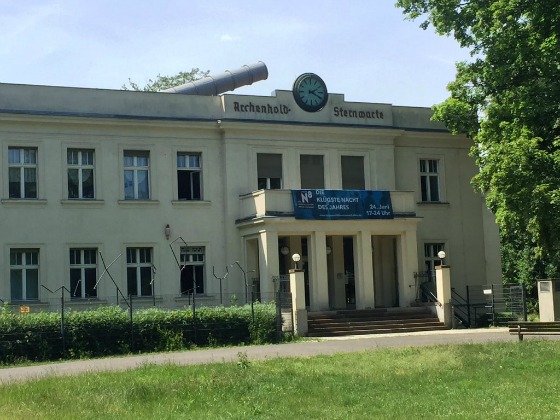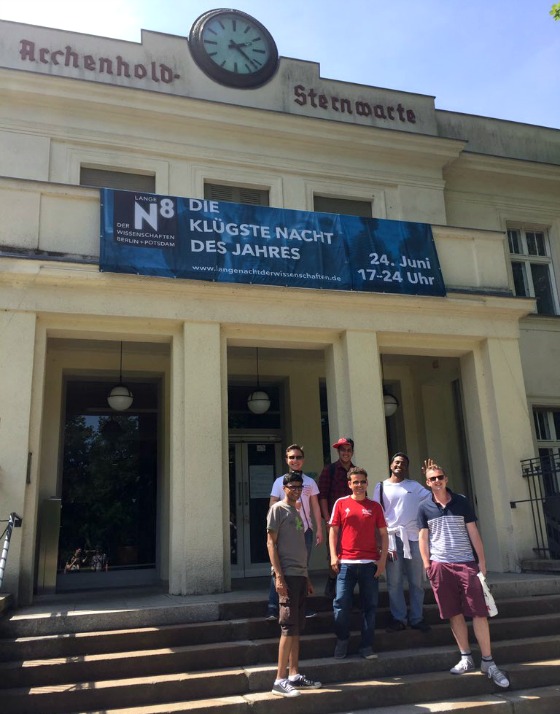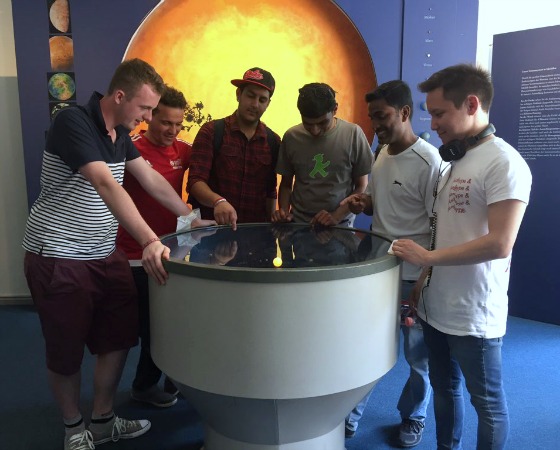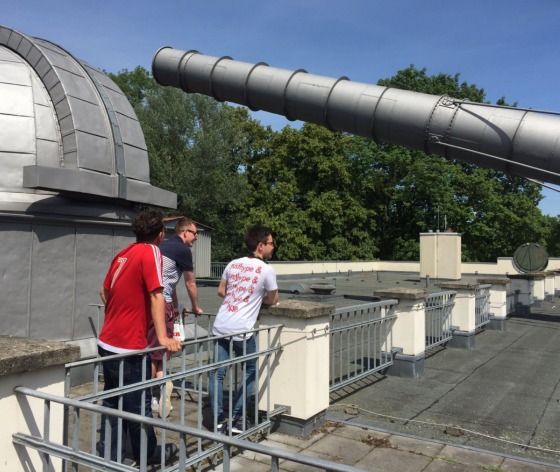Germany’s oldest and largest public observatory proved to be “nerd heaven” for Physics, Engineering and PhD students from De Montfort University Leicester (DMU).

Located on the outskirts of Berlin and home to a 21-metre moveable refracting telescope nicknamed the ‘sky canon’, Archenhold Observatory opened in 1896 and is where Albert Einstein gave his first public lecture on the Theory of Relativity.
As well as seeing the historical telescope, students on the latest #DMUglobal trip also had the chance to explore astrographs, which take photos of the sky, and a 500-millimetre reflecting telescope for viewing planets, binary stars and the moon.
They observed the prismatic colours of sunlight and active solar zones in the Solar Physics exhibition room - with the help of the Jensch Coelostat, a device which captures light from the sun - and saw the complete northern or southern hemisphere skies projected on an eight-metre dome in the Zeiss Planetarium.

Final-year Physics student Jake Deeming said: “We’ve been lucky on our course, we’ve had the chance to do some practical astronomy earlier in the year, but nothing on this scale. It was really aspirational and a fantastic new experience.
“It’s all well and good learning stuff in a lecture room, but until you actually see it for yourself it’s not quite real. You’ve got to have a connection with the real science behind the theory for it to make full sense to you.
“Even though in the grand scheme of science this isn’t that old it became obsolete very, very quickly. Nowadays we’ve started to use radio and X-ray telescopes to see deeper into space, but coming to a place like this you can’t help but think ‘wow’. I can’t imagine how difficult it would be to build a telescope like this now, let alone 100 years ago.”
RELATED NEWS
Get the latest on the #DMUglobal trip to Berlin
Film students visit one of Berlin's 'most iconic' cinemas
Engineering students feeling revved up after BMW visit in Berlin

Thanks to DMU’s “ground-breaking research right now”, final-year Physics student Amar Rajput is considering an MSc in Material Science next.
“It’s quite amazing to see something like this - I’m in nerd heaven here. It’s very difficult to come across constructions because they have to be so far out in nature to avoid pollution, light pollution and so on,” he said.
“Just to see something that’s actually been involved in leading research is quite inspirational. One of the other brilliant places we’ve been to in relation to physics is the German Museum of Technology where we got to see the evolution of technology and some of the biggest contributions to science.
“It was very interesting to see how computers and process have evolved over time into everything we know and use and depend on now. I feel like we’ve only only just scratched the surface of what Berlin has to offer in terms of history, culture and technology.”

Febin Paul, a Nanotechnology PhD student, said: “It’s was beautiful and wonderful to see that it was filled with equipment that’s not very fancy by modern standards. But if you think about it, these are the kind of places where astronomy was born and we’ve used these rudimentary instruments to come up with the complicated theories that we know today.”
The trip leader and an Early Career Academic Fellow at DMU, Krishna Nama Manjunatha, said: “We went there to see exactly why science is so important - this particular observatory has the longest telescope in Europe and it is still in use. It is also a place where Einstein has taught which made me so proud to be there and the students were very excited too.
“I hope this motivates them to consider doing an MSc or some research next, as it’s very important not to stop at undergraduate level. The concepts that we came across there are very simple, but were ground-breaking in their day. I’m hoping this will make the students feel more confident in thinking ‘I can discover something new too’.”
Posted on Friday 16 June 2017